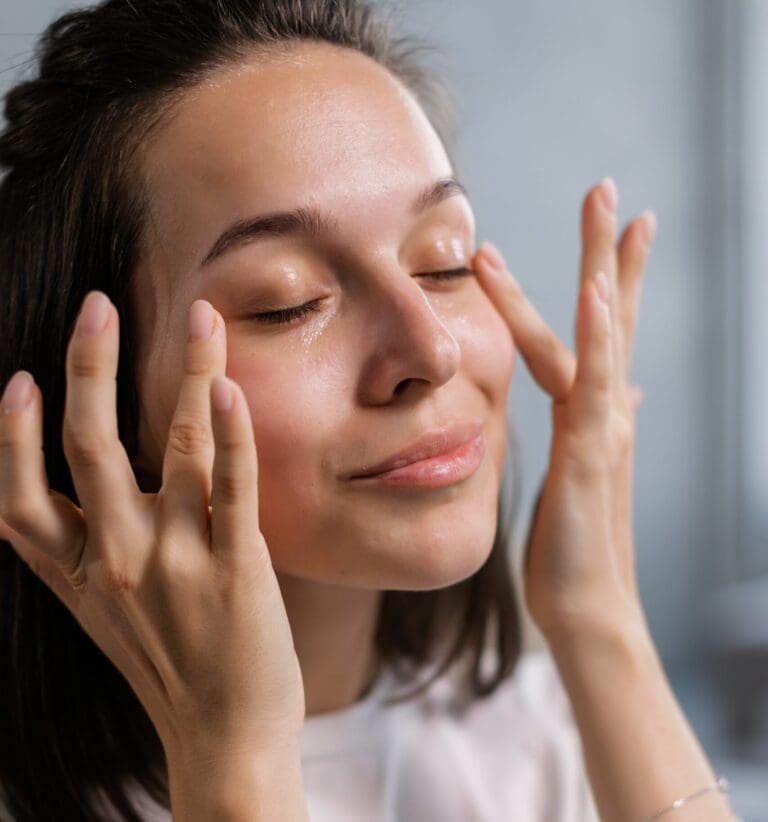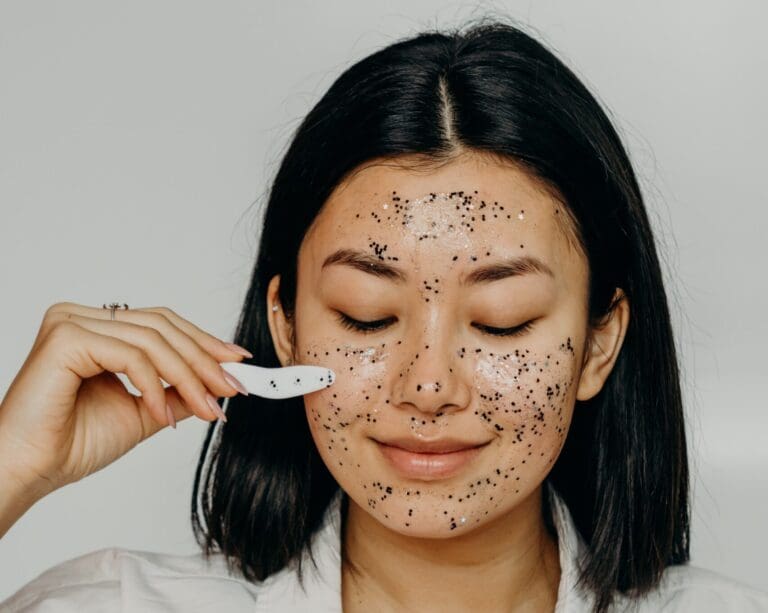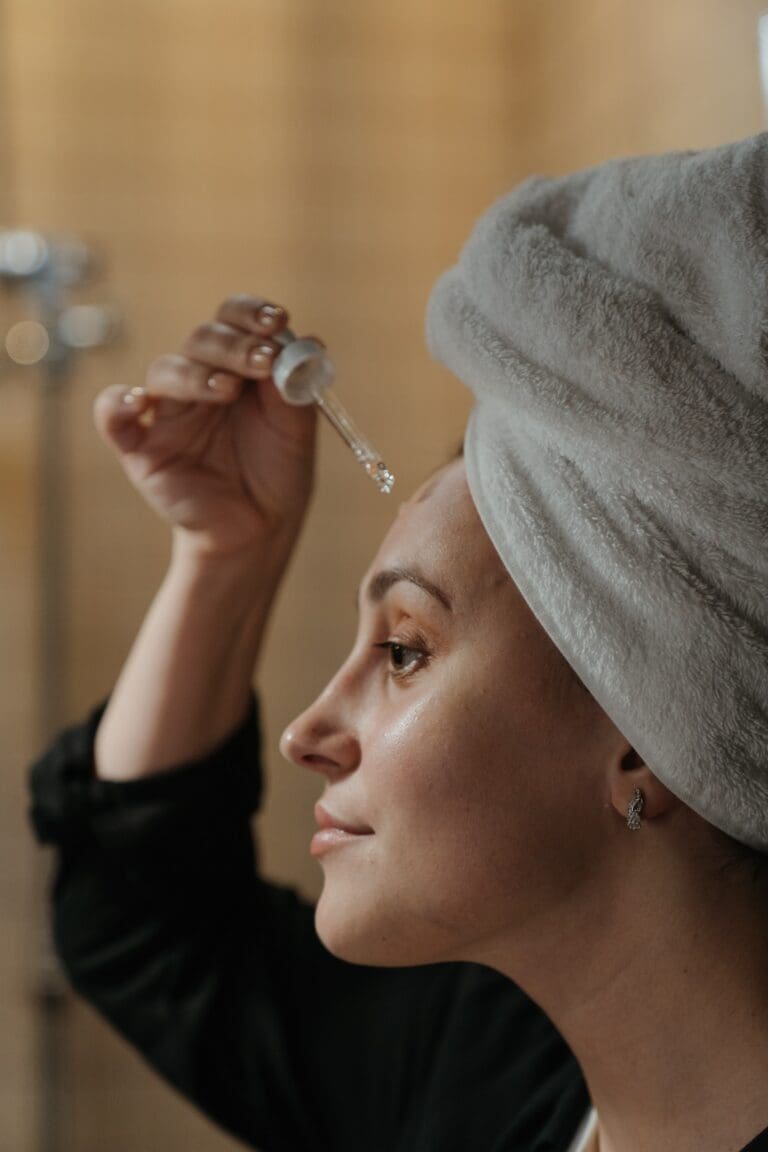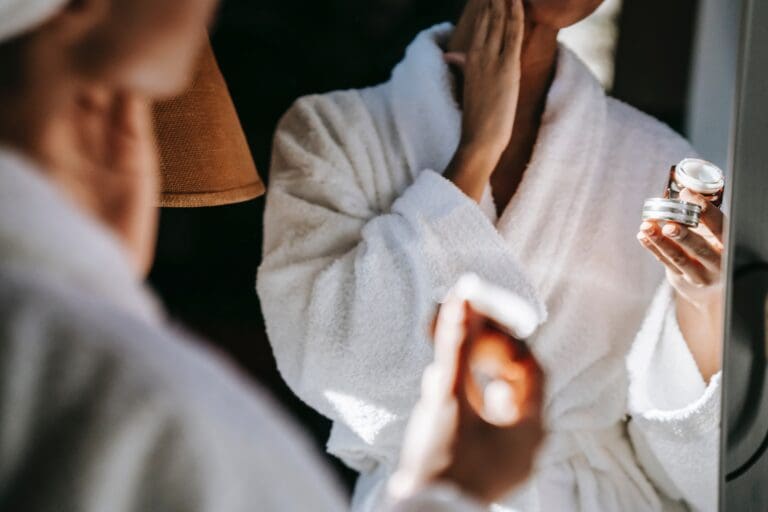Treat Acne and Prevent Future Breakouts
Acne is a common skin condition that affects people of all ages. It occurs when hair follicles become clogged with oil and dead skin cells, resulting in pimples, blackheads, and whiteheads. While it’s not a serious health condition, acne can be frustrating and embarrassing. If left untreated, it can lead to scarring and hyperpigmentation. In this article, you’ll learn how to treat acne and prevent future breakouts.
The first step in treating acne is to establish a good skincare routine. This includes cleansing your face twice a day with a gentle cleanser and using a non-comedogenic moisturizer. Avoid using harsh scrubs or exfoliants, as they can irritate the skin and make acne worse. It’s also important to avoid touching your face, as this can transfer bacteria and oil from your hands to your skin.
In addition to a good skincare routine, there are several over-the-counter treatments that can help clear up acne. These include benzoyl peroxide, salicylic acid, and retinoids. Each of these ingredients works differently to unclog pores, reduce inflammation, and promote skin cell turnover. However, it’s important to use these products as directed and be patient, as it can take several weeks to see results.
Understanding Acne
Acne is a common skin condition that affects many people, especially teenagers. It occurs when hair follicles become clogged with oil and dead skin cells, leading to the formation of pimples, blackheads, and whiteheads.
There are many factors that can contribute to the development of acne, including genetics, hormones, and lifestyle. For example, if your parents had acne, you are more likely to develop it as well. Hormonal changes during puberty can also trigger acne, as can stress, poor diet, and certain medications.
Acne can be classified into different types based on its severity and the type of lesions present. Mild acne consists of a few pimples or blackheads, while moderate acne involves more widespread inflammation and larger pimples. Severe acne can cause deep, painful cysts and scarring.
It’s important to understand that acne is not caused by poor hygiene. In fact, washing your face too often or using harsh scrubs and cleansers can actually make acne worse by irritating your skin and causing more inflammation.
Fortunately, there are many effective treatments for acne, including topical creams, oral medications, and lifestyle changes. By working with your dermatologist and following a personalized treatment plan, you can improve your skin and prevent future breakouts.

Types of Acne
Acne is a common skin condition that affects many people. It can be caused by a variety of factors, such as genetics, hormones, and diet. There are several different types of acne, each with its own unique characteristics.
Whiteheads and Blackheads
Whiteheads and blackheads are the most common types of acne. They are caused by clogged pores that become inflamed. Whiteheads are closed comedones, meaning that the pore is completely blocked. Blackheads, on the other hand, are open comedones, meaning that the pore is only partially blocked. They are called blackheads because the sebum and dead skin cells inside the pore are exposed to air, which causes them to oxidize and turn black.
Papules and Pustules
Papules and pustules are more severe types of acne that are characterized by inflamed, red bumps on the skin. Papules are small, raised bumps that do not contain pus. Pustules, on the other hand, are larger and contain pus. They are often referred to as “pimples.”
Nodules and Cysts
Nodules and cysts are the most severe types of acne. They are large, painful bumps that are deeply embedded in the skin. Nodules are solid, while cysts are filled with pus. They can take a long time to heal and often leave scars.
In conclusion, understanding the different types of acne is important in order to properly treat and prevent future breakouts. It is important to consult with a dermatologist if you are experiencing severe or persistent acne.
Causes of Acne
Acne is a common skin condition that affects millions of people worldwide. The exact cause of acne is not known, but there are several factors that can contribute to its development.
Hormones
Hormonal changes are one of the most common causes of acne. During puberty, the body produces more androgens, which stimulate the production of oil in the skin. This excess oil can clog the pores and lead to the development of acne.
Genetics
Acne can also be hereditary. If your parents or siblings have had acne, you may be more likely to develop it as well. This is because certain genes can make your skin more sensitive to the effects of hormones.
Diet
While there is no direct link between diet and acne, some studies have suggested that certain foods may exacerbate the condition. Foods high in sugar and refined carbohydrates, such as white bread and candy, may increase inflammation in the body and worsen acne.
Stress
Stress can also contribute to the development of acne. When you are stressed, your body produces more cortisol, a hormone that can increase oil production in the skin. This excess oil can clog the pores and lead to acne.
Medications
Certain medications, such as corticosteroids and lithium, can also cause acne. If you are taking any medications and are experiencing acne, talk to your doctor to see if there is an alternative treatment available.
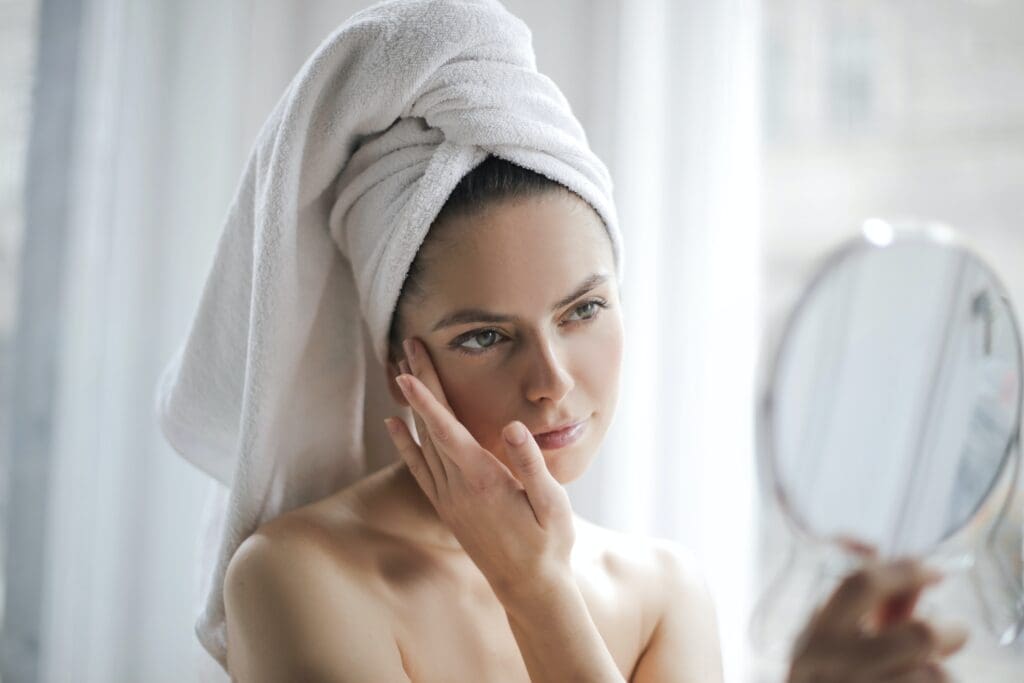
How to Treat Acne
Acne is a common skin condition that affects people of all ages. It can be frustrating to deal with, but there are many treatments available to help you manage your symptoms. In this section, we’ll go over some of the most effective ways to treat acne.
Over-the-Counter Treatments
Over-the-counter acne treatments are a good place to start if you have mild to moderate acne. These products are available at most drugstores and can be used at home. Some of the most common over-the-counter treatments include:
- Benzoyl peroxide: This ingredient helps to kill the bacteria that cause acne. It also helps to unclog pores and reduce inflammation.
- Salicylic acid: This ingredient helps to exfoliate the skin and unclog pores. It also has anti-inflammatory properties.
- Retinoids: These are vitamin A derivatives that can help to unclog pores and reduce inflammation. They can also help to improve the appearance of acne scars.
When using over-the-counter acne treatments, it’s important to follow the instructions carefully. You may need to use the product for several weeks before you see results. If you have sensitive skin, you may need to start with a lower strength product and gradually work your way up.
Prescription Treatments
If your acne is more severe, you may need prescription-strength treatments. These treatments are available from a dermatologist and may include:
- Topical antibiotics: These medications help to kill the bacteria that cause acne. They are often used in combination with other acne treatments.
- Oral antibiotics: These medications are taken by mouth and help to reduce inflammation and kill bacteria. They are typically used for moderate to severe acne.
- Oral contraceptives: For women, birth control pills can help to regulate hormones that contribute to acne.
- Isotretinoin: This medication is a powerful retinoid that is used to treat severe acne. It can have serious side effects, so it’s important to discuss the risks and benefits with your doctor.
Natural Remedies
There are also many natural remedies that can help to treat acne. Some of the most popular options include:
- Tea tree oil: This essential oil has anti-inflammatory and antimicrobial properties. It can be applied directly to the skin or added to a carrier oil.
- Aloe vera: This plant has anti-inflammatory properties and can help to reduce redness and swelling.
- Green tea: Drinking green tea or using it as a toner can help to reduce inflammation and unclog pores.
- Zinc: This mineral can help to reduce inflammation and improve the immune system.
While natural remedies can be effective, it’s important to remember that they may not work for everyone. It’s always a good idea to talk to your doctor before trying any new treatments.
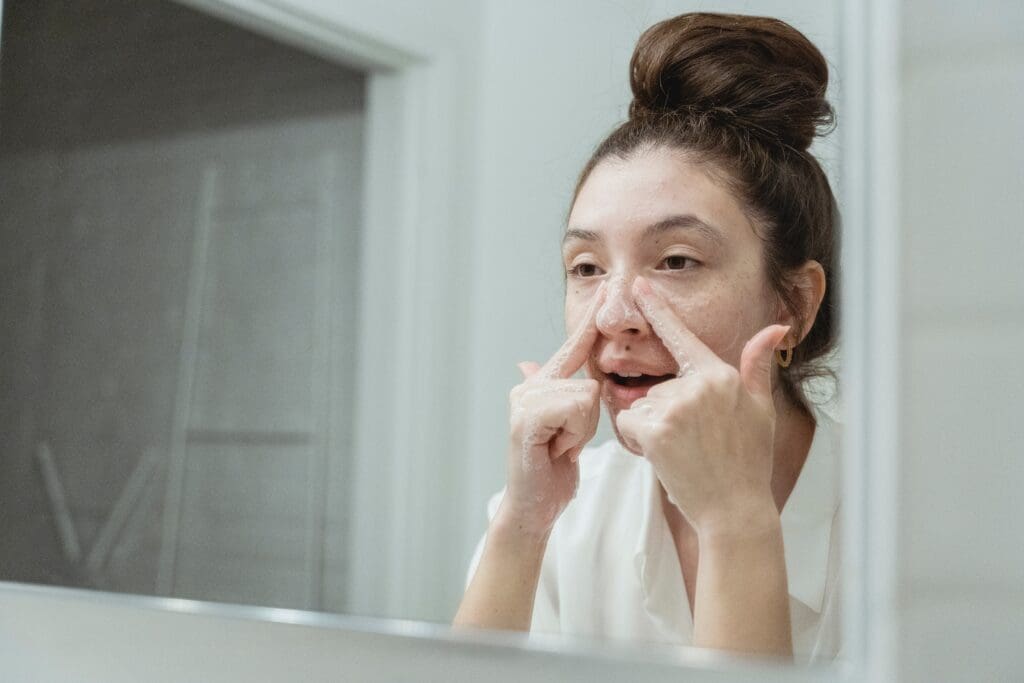
Preventing Future Breakouts
Acne can be frustrating to deal with, but there are steps you can take to prevent future breakouts. By maintaining a healthy diet, establishing a proper skincare routine, and making lifestyle changes, you can reduce your chances of developing acne in the future.
Maintaining a Healthy Diet
Your diet can play a significant role in the health of your skin. Eating a balanced diet that includes plenty of fruits, vegetables, and whole grains can help keep your skin healthy and prevent breakouts. Foods that are high in sugar or processed carbohydrates can cause inflammation in the body, which can lead to acne. Try to limit your intake of sugary drinks and snacks, and opt for healthier options like water, herbal tea, and fresh fruit.
Proper Skincare Routine
Establishing a proper skincare routine is essential for preventing future breakouts. Cleansing your face twice a day with a gentle cleanser can help remove dirt, oil, and bacteria from your skin. Be sure to choose products that are non-comedogenic, meaning they won’t clog your pores. Using a toner and moisturizer can also help keep your skin healthy and prevent breakouts.
In addition to cleansing and moisturizing, exfoliating your skin once or twice a week can help remove dead skin cells and prevent clogged pores. Be sure to choose an exfoliant that is gentle and won’t irritate your skin.
Lifestyle Changes
Making lifestyle changes can also help prevent future breakouts. Stress can contribute to acne, so finding ways to manage stress, such as exercise, meditation, or yoga, can be beneficial. Getting enough sleep is also important for keeping your skin healthy and preventing breakouts.
Finally, avoid touching your face or picking at your skin, as this can spread bacteria and cause breakouts. If you wear makeup, be sure to choose non-comedogenic products and remove your makeup before bed.
When to See a Dermatologist
If you have tried various over-the-counter acne treatments and are still experiencing breakouts, it may be time to see a dermatologist. A dermatologist is a medical professional who specializes in treating skin conditions, including acne. They can provide personalized treatment options based on your specific skin type and severity of acne.
Some signs that it may be time to see a dermatologist for your acne include:
- Your acne is severe or cystic
- Your acne is not responding to over-the-counter treatments
- Your acne is causing scarring
- Your acne is interfering with your daily life or self-esteem
During your appointment with a dermatologist, they may perform a skin analysis to determine the underlying cause of your acne. They may also recommend prescription-strength topical or oral medications, such as retinoids or antibiotics. In some cases, they may suggest other treatments, such as laser therapy or chemical peels.



